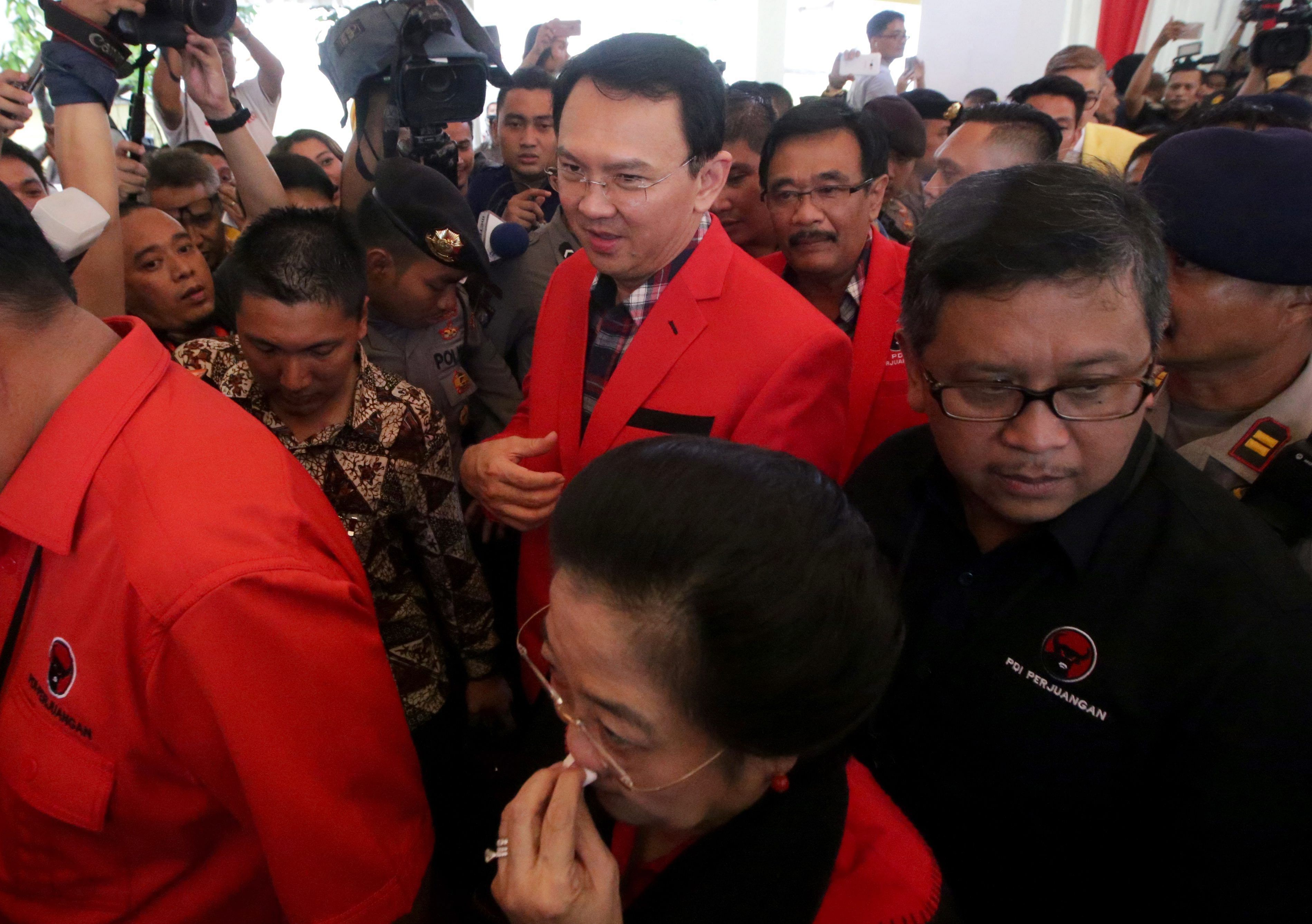JAKARTA • When a journalist recently asked Jakarta Governor Basuki Tjahaja Purnama about a snap poll that showed a rare dip in his electability, he replied: "It's fine, if it's falling, let it fall."
This, from an Indonesian politician whose gregarious personality often traverses the line between self-confidence and arrogance.
Few can blame the man whose straight-talking and no-nonsense style in running Indonesia's capital has kept him at the top of popularity polls, even when he was deputy to then Governor Joko Widodo.
Ahok, as he prefers to be called, had inherited the top job after Mr Joko was elected President in 2014. The two men had an effective partnership managing the city of 10 million - one of the most densely populated in the world - and remain close.
Ahok's combative streak, however, has often rattled the predominantly Javanese political elite, more accustomed to a wayang or show of subtlety and indirectness.
Critics also often make hay of him being ethnic Chinese or Christian, or both, and hence unsuitable to govern the capital of a majority Muslim country, said observers.

His supporters, including more than a million Jakartans from all walks of life who started a social movement to get him to run as an independent, clearly disagreed.
This was primarily because he has managed to push through or revive urban renewal projects such as the MRT, resolve the city's major flooding issues, as well as clean up the city, including clamping down on vice.
Still, the late decision on Tuesday night by the ruling Indonesian Democratic Party - Struggle (PDI-P) to endorse him for re-election next year took some by surprise.
The PDI-P, which backed Mr Joko for the presidency, is led by former president Megawati Sukarnoputri.
It is widely known that she had misgivings over Mr Basuki's earlier bid to run as an independent and so she courted other potential candidates, including popular Surabaya mayor Tri "Risma" Rismaharini.
Ms Megawati, however, has since said that she had "used her prerogative" as PDI-P leader to back Ahok for the gubernatorial election because he had a nationalistic spirit akin to her party's ideology.
However, more than one party observer has said that certain quarters in the PDI-P were concerned the party may take a hit at the polls if it turned away from Ahok, a highly polarising but popular figure.
He had topped four recent electability surveys, including one by Poltracking Indonesia featuring Ms Risma, former education minister Anies Baswedan and businessman Sandiaga Uno.
Mr Sandiaga is the candidate expected to be fielded by an opposing coalition led by the Gerindra Party to challenge Ahok, and his running mate Djarot Saiful Hidayat of the PDI-P, although the opposition faction is also considering Mr Anies.
Many observers had said that instead of his rivals on polling cards, Ms Megawati, known for her disdain for political upstarts, would be his biggest obstacle to re-election.
Ahok, of course, always had a knack of breaking ranks.
Two years ago, he publicly resigned from Gerindra in protest against plans by party cadres to push for a controversial law that would scrap direct elections in Indonesia.
Proof that he was unfazed by the PDI-P dragging its feet to endorse him came when he showed up at the party's headquarters in Menteng on Tuesday for the announcement, dressed in batik instead of PDI-P red like the rest of its candidates contesting elsewhere.
Last month, there were rumours that Ms Megawati was holding out for Mr Joko to promote her former aide and deputy police chief Budi Gunawan to the top post at Indonesia's intelligence agency, before she greenlighted Ahok.
General Budi received his fourth star and was sworn in as spy chief just two weeks ago.
But beyond the political smoke and mirrors, Ahok is now undoubtedly a shoo-in for re-election as Jakarta governor next year.
With the support of PDI-P and Golkar, he is now backed by two of the largest political parties in Indonesia, as well as a coalition that includes the National Democratic Party and the People's Conscience Party, or Hanura.
Analysts such as Mr Yose Rizal, founder of Jakarta-based consulting firm Politicawave, said that while President Joko officially adopts a hands-off policy in the gubernatorial election, he would be happier with the support of a governor who shares his vision. With Ahok poised to retain his seat in Jakarta, the President can expect to cement a solid support-base in the capital for his own re-election in 2019.

